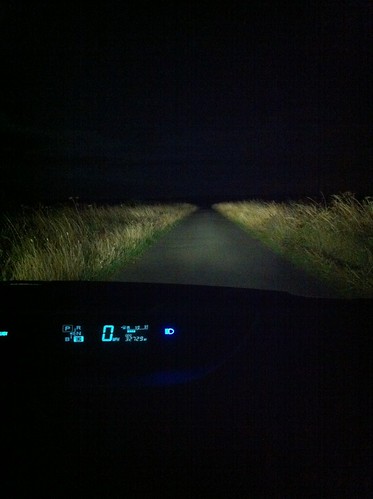One of the things I like most about the Web is the quality of the writing and thinking one finds there. (If this runs counter to mainstream media’s “the-Net-is-full-of-crap” meme, then so much the worse for the meme.) Of course there’s great stuff in print too, but much of what I enjoy and value most is exclusively online.
Caution with Anderson’s theory aside, there is no doubt the app phenomenon will significantly impact the way we consume news: apps might become their main cognitive container. They won’t be as rich as a website, but they are likely to enable more focused usage. Consider the upside in the absence of links: On a web site, a link in a story means leaving it to go elsewhere. In an app, as the link uses an encapsulated browser instance, the reader doesn’t feel she’s leaving the story, the environment stays the same, the UI remains consistent. This results in a more immersive experience, like in a physical newspaper, or in a book where reading is not disrupted by context changes. Apps will be a good vector for complex writings (quantum mechanic vs. celebrity gossip) even though compulsive foragers will blame the impossibility to comment, share, propagate, squabble around contents.
[Aside: I’d quibble with the ascription of “compulsive forager” to someone as perceptive as Steven Johnson whose essay on “The Glass Box and the Commonplace Book” is wonderful.]
Unlike many commentators, however, Filloux doesn’t go in for what John Seely Brown calls “endism”. Instead he sees these developments in ecological terms: “Like in previous media transitions”, he writes, “the new genre of apps on smartphones or tablets isn’t likely to completely supplant web pages. Each category simply corresponds to a different need: the web for news-picking to socialize with; apps for long stuff to actually read.” Filloux then begins to trace the implications for media organisations and other professional publishers of ‘content’. They will need to build Apps-creation into their standard, everyday work-flows rather than outsourcing them to software houses. And of course for that to become possible, they will need to acquire and master new software tools. But they’re not currently set up for this.
From a digital business unit standpoint, current SDK (Software Development Kits) appear way too complicated to accommodate the urgency of the news business, of its short reaction-times. What is needed is a set of tools, based on templates embedded in CMS like those available for Flash sites. Apple and Android should think about it.
Yep. They should. And, as I observed yesterday, book publishers should be thinking about it too.




